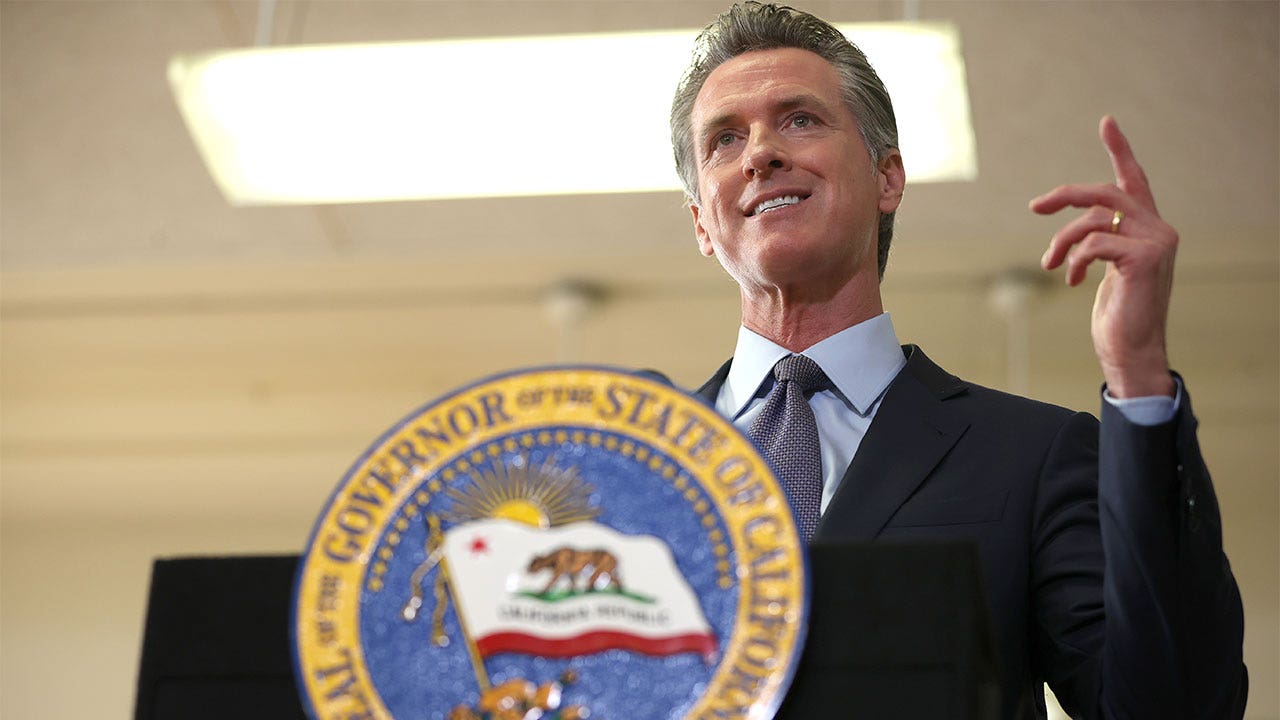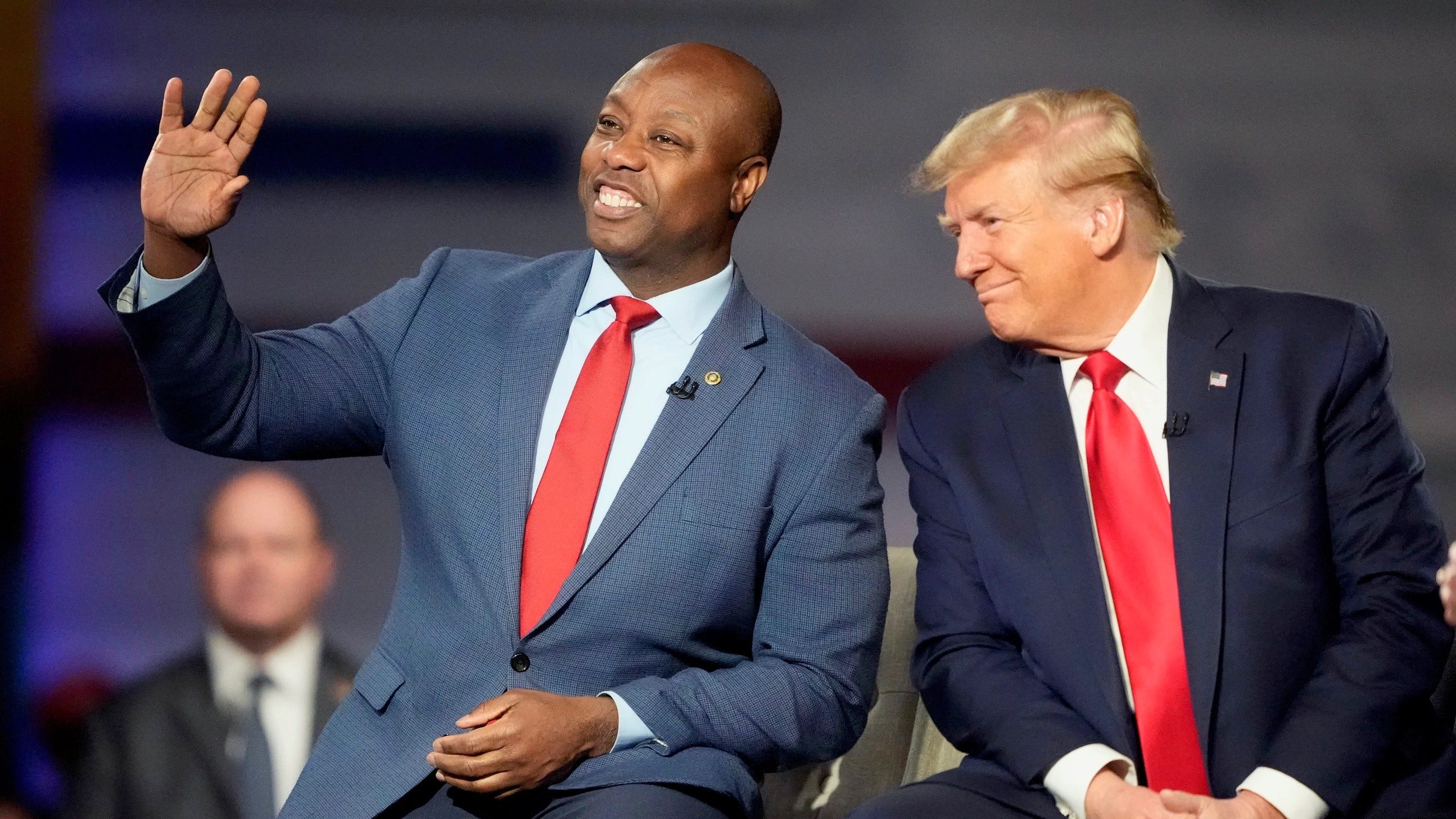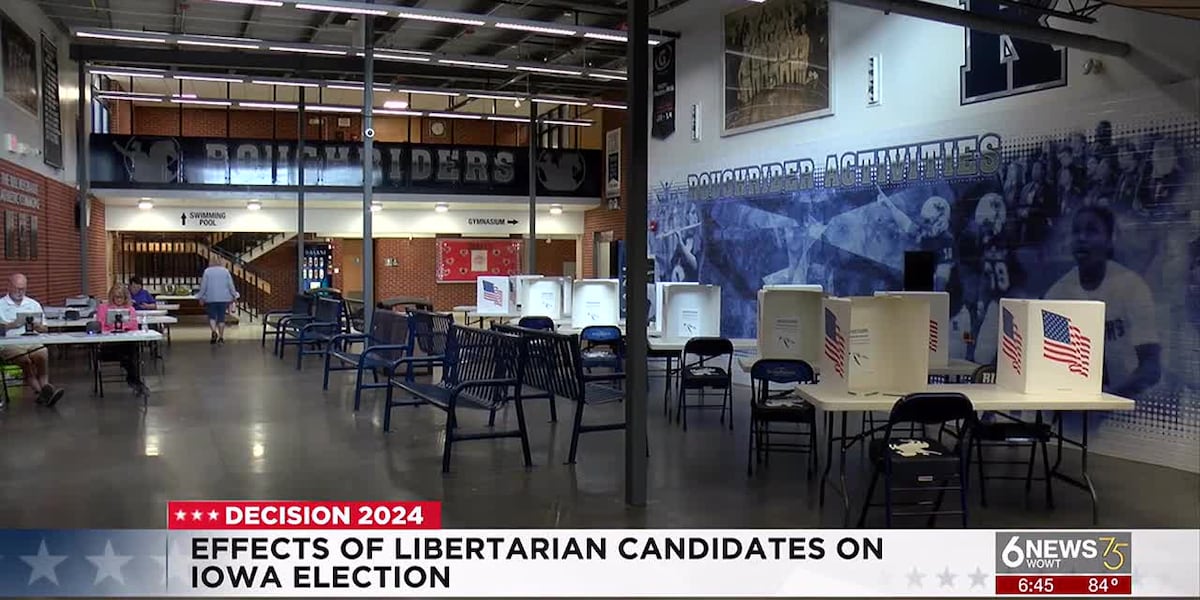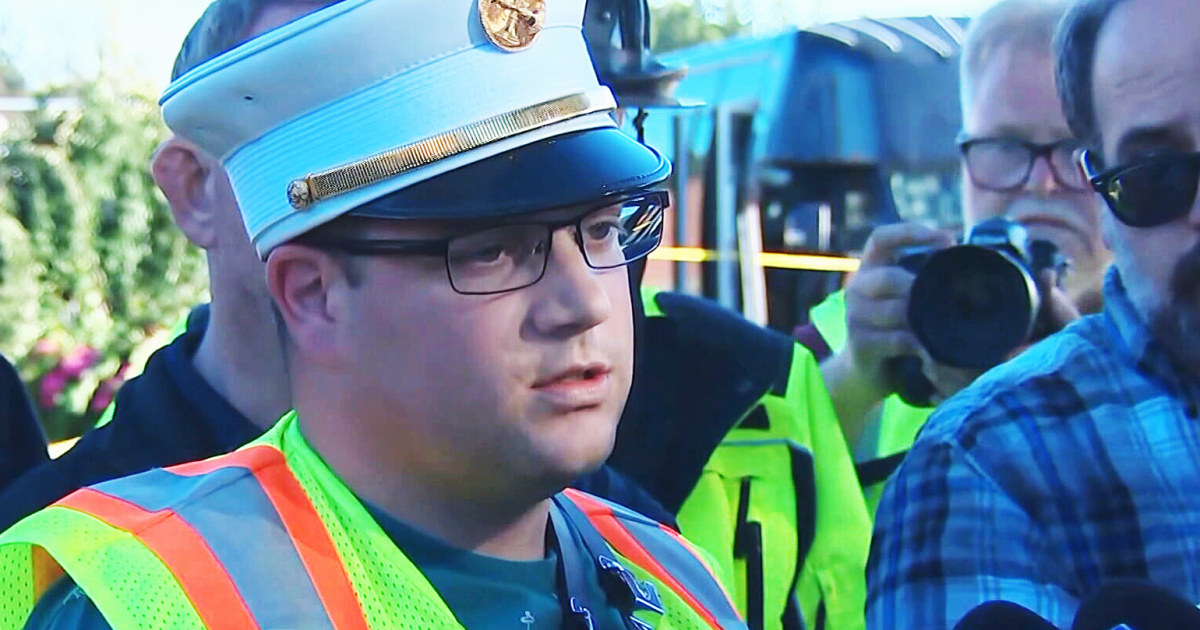North Dakota
Burleigh County auditor sues to ban North Dakota from counting ‘late ballots’

BISMARCK — A Burleigh County official wants North Dakota to stop counting ballots that are received after Election Day.
Burleigh County Auditor Mark Splonskowski filed a federal lawsuit Wednesday, July 5, asking the U.S. District Court in North Dakota to decide the constitutionality of North Dakota law when it comes to accepting ballots after Election Day. Federal law conflicts with North Dakota Century Code, putting him at risk of criminal prosecution if he “chooses incorrectly” which law to enforce, Splonskowski’s lawsuit claimed.
“North Dakota law and Defendant’s enforcement of it harm Mr. Splonskowski because they put him in the position of having to choose between dictates of state law to accept and allow votes to be cast after Election Day and federal law that requires a single election day,” the civil complaint said.
The lawsuit names North Dakota Election Director Erika White as the defendant. Splonskowski has asked the U.S. District Court to declare North Dakota violates federal law by allowing ballots that come in after Election Day to be counted.
He also asked White be banned from enforcing the North Dakota law and training elected officials to accept what he called “late ballots.”
The Secretary of State’s Office, where White works, did not respond to a request for comment. Splonskowski also did not return a message left by The Forum.
North Dakota allows counties to accept absentee ballots in person the day before Election Day. If mailed, the ballot must be postmarked the day before, as well, according to Century Code.
Some mailed ballots may not be received and counted by county officials until days after Election Day. Counties must finalize voting results during a process called canvassing 13 days after Election Day, according to North Dakota law.
Some, including Splonskowski in his lawsuit, have criticized mail-in ballots as allowing elections to last beyond Election Day, with residents not knowing who their elected officials are until days later.
“Federal law prescribes votes to be tabulated on Election Day, as every mention of the day is singular, and not plural,” Splonskowski said in his lawsuit.
The lawsuit displayed a political cartoon that made fun of the election process. An election official shown in the cartoon holds a piece of paper and says, “Election Day could last weeks.”
The auditor argued in his lawsuit that he could be charged with a Class A misdemeanor if he knowingly excludes a “qualified elector from voting” or allows “an unqualified individual to vote.” That carries a maximum punishment of 360 days in jail.
He also could face charges for failing to properly perform his duty as an election officer and willfully violating the Secretary of State’s rules, according to the civil complaint. If he willfully makes a false canvass of votes, he could be charged with a Class C felony and be subject to five years in prison, the lawsuit said.
“Mr. Splonskowski has no other remedy in law and will suffer serious and irreparable harm to his constitutional rights unless Defendant is enjoined from implementing North Dakota’s laws related to accepting late ballots,” the lawsuit said.
In the November 2022 election, Burleigh County received at least 53 ballots after Election Day, 30 of which were counted, the lawsuit said. One ballot that didn’t have a postmark was counted, according to the complaint.
North Dakota’s 53 counties received almost 300 ballots after the last general election on Nov. 8, with 212 being counted.
Cass County counted 121 ballots that came in legally after Election Day, Cass County Election Coordinator Craig Steingaard said. The Cass County canvassing board decides which ballots to accept, and any that are received late in-person or postmarked on Election Day or afterward are not counted, he said.
“Every county gets to make that decision, too,” he said. “Any ballot that comes in after the canvassing date, that is 13 days after the election, those are not accepted. Those are automatically rejected. They can’t be counted.”
Splonskowski was elected auditor in the 2022 general election in November, winning by 2% over Kirsten Dvorak. That means he did not act as auditor in the last general election, but he would be a part of the canvassing board for the 2024 election and must train election officials who will accept ballots.
Splonskowski resigned in March from the Bismarck City Commission, to which he was elected in June 2020, after Burleigh County State’s Attorney Julie Lawyer expressed conflict of interest concerns if he held both positions.
Attorney David Chapman of West Fargo is representing Splonskowski in the case. Court documents also listed Public Interest Legal Foundation lawyer Noel Johnson as the auditor’s legal counsel.
The Public Interest Legal Foundation is a conservative nonprofit based in Virginia that says it is dedicated to election integrity. It is known for making claims of voter fraud in connection to the 2020 presidential election.
Foundation Board of Directors Chairwoman Cleta Mitchell represented former President Donald Trump in his failed legal efforts to overturn the 2020 election, during which he lost the presidential election to Joe Biden.
In a statement, the organization said the lawsuit is meant to “restore the day in Election Day.”
“Election Day has ceased to be a day,” Foundation President J. Christian Adams said in a statement. “Instead, we have election month because states accept ballots that arrive days and even weeks after Election Day. Not only does this lead to distrust and chaos in the system, but it also violates federal law.”
April Baumgarten joined The Forum in February 2019 as an investigative reporter. She grew up on a ranch 10 miles southeast of Belfield, N.D., where her family raises Hereford cattle. She double majored in communications and history/political science at the University of Jamestown, N.D.

North Dakota
Riders say encounter with bachelor stallion at Theodore Roosevelt National Park was 'magical,' not dangerous

MEDORA, N.D. — A group of six riders had just finished packing and started on a trail ride through the Badlands at Theodore Roosevelt National Park when a wild horse came scurrying down a butte toward them.
“All of a sudden I heard a whinny come from up on the bluff,” Kelly Ringer said. She was one of the riders visiting the park from Park Rapids, Minnesota. “He came barreling down.”
The horse’s dramatic arrival came with a spirited exchange of whinnying and neighing as the wild horse, a 5-year-old stallion named Alluvium, and the horses in the riding group chatted.
At first, Ringer, who was riding a young horse who had never before been exposed to a wild horse and was unfamiliar with the terrain, was concerned. But her worries quickly faded.
“It was magical,” Ringer said. “He was fine. He wasn’t aggressive.”
It soon became apparent that Alluvium had a particular interest in a “little mare” named Gypsy in the riding group, she said, which was departing from the Roundup Group Horse Camp 12 miles from Medora in the park’s south unit, where 185 to 200 wild horses roam.
“He decided to hang around” and followed the group as it left for the trail ride on Thursday, May 16, Ringer said. Alluvium circled the riders and after about five minutes, Ringer’s horse, Boone, bucked, and she fell. She was not hurt.
“That’s just what horses do,” she said. “It wasn’t a big deal.”
Alluvium followed the riders for a time but stopped after a while, seeming to keep to a certain area while avoiding others.
“I think that was probably his territory,” and he appeared to regard other areas as off-limits, possibly because they were the turf of other wild stallions in the park, Ringer said.
The wild horses are organized into social groups called bands, each led by a stallion.
Later on during the ride, when Alluvium was no longer tailing the group, Ringer’s horse again bucked, possibly spooked by some brush.
“It’s horses,” Ringer said. “They have a mind of their own. It’s a risk that you take.”
Horse advocates have said Alluvium, a bachelor stallion, was acting naturally by trying to recruit mares to form his own band.
Ringer and her fellow riders had another drop-in visitor at Roundup Group Horse Camp — a bison that came up close to the corral and charged, spooking Boone, who was inside the corral.
“He took a couple of charges at the corral with my horse in it,” she said. “That was a little unsettling.”
Contributed / Kelly Ringer
But the group of riders came to the park knowing that it is home to wildlife, including horses and bison, Ringer said.
“These are just risks that you take,” she said. “What would that park be without the bison and the wild horses? The park would not be what it is without the wildlife, and that includes the wild horses.”
During their stay, a park ranger paid a visit to the group of riders at Roundup camp, and they told him about their encounter with Alluvium.
“We didn’t necessarily report it,” Ringer said. “We didn’t contact the park, but a ranger came in one day and the horse (Alluvium) was there and asked if he was a nuisance.”
Ringer mentioned that she had been bucked off. The ranger asked if they wanted Alluvium removed and was told no. The ranger left soon after, and Ringer thought no more of it — until she learned the park considers Alluvium a “nuisance animal” that poses a danger to the public and will remove him from the park.
“That’s why I feel so bad,” she said. “We told the ranger, ‘No, leave him.’”
She added: “This is a young bachelor stallion. He’s just doing what is natural. Horses are herd animals.”
Another rider in the group, Kaylee Bickey, also of Park Rapids, said Alluvium was not acting aggressively around Gypsy and the other horses.
“He wasn’t really trying to cut her out or anything,” she said. “When we said, ‘Git,’ he got, he went away. He just wanted other horses to be with.”
After their ride, when Gypsy was returned to the corral, Alluvium stayed close by.
Bickey’s recollection of the discussion with the park ranger about Alluvium matched Ringer’s.
“We told the ranger about him, but we never complained. We went to see wild horses. It was probably a top-five experience of my life.”
The riders brought young horses that hadn’t experienced situations like those in the park and reacted more than seasoned horses would have, Bickey said.
“It wasn’t any fault of Alluvium,” she said. “It was our fault for not exposing them to things before just taking them out. Once they had been around him for a little bit, they were fine.”
Ringer, who has ridden horses for 30 years, recalled encounters with dogs, deer and even inanimate objects that spooked horses. “If I would go and eliminate something every time it spooked my horse — that’s just insane,” she said.
Park officials have not given interviews about Alluvium but issued statements.
Park Superintendent Angie Richman said Alluvium was “harassing visitors and visitor’s horses at the horse camp campground. Park staff relocated it once and it found its way back to the camp the next day. This is a nuisance animal that can potentially harm visitors or their animals.”
Park officials have been holding Alluvium in a pen for several weeks “until it can be sold or transferred to a tribal partner or other government agency,” Richman said earlier.

Contributed / Chris Kman
Chris Kman, president of Chasing Horses Wild Horse Advocates, asked park officials to allow Alluvium to stay in the park. He was in his home and acting naturally in the encounter with visiting horses, she said, noting bison are dangerous but remain in the park, apparently even after goring visitors.
By describing the horses as livestock instead of wildlife, a term the park formerly used, park officials are doing a disservice to visitors by making the horses seem tame, Kman wrote in an email to Richman.
In an interview, Kman said it appears Richman is determined to reduce the size of the herd, and Alluvium’s encounter with the mare provided an excuse to get rid of a horse. She said a horse trailer has been parked near the pen where Alluvium is being held, apparently in preparation for transporting him.

Contributed / Gary Kman
Park officials did not directly respond to the points raised by Kman or the account given by Ringer and Bickey that found no fault with Alluvium’s behavior.
“I would adopt him if I could,” Bickey said. “For a wild horse, he was pretty well-behaved.”
Park officials haven’t yet made arrangements for an auction sale of Alluvium.
“We currently do not have any additional details concerning an auction,” Maureen McGee-Ballinger, deputy park superintendent, said in an email. “When/if there is an auction, the details will be announced.”
North Dakota
Tribes underscore how economic development, social programs are helping members

Leaders of tribal nations highlighted efforts to bolster their communities and strengthen their sovereignty at an annual summit this week.
Frank Jamerson, vice chair of the Standing Rock Sioux Tribe, said the tribe has made progress building relationships with other government agencies.
“We’re now able to take those steps forward so we can start showing the United States government that we as Native Americans can start taking care of ourselves,” Jamerson said.
Mary Steurer / North Dakota Monitor
During the event, which took place Tuesday and Wednesday at the Bismarck Event Center, the five tribes that share geography with North Dakota were invited to provide updates on projects and programs and to speak to accomplishments and challenges in their communities.
Standing Rock, for instance, will soon start construction on several new greenhouses. The goal of the program is to help the tribe produce more of its own food.
Standing Rock is planning a new records building, as well. The facility will store the tribe’s historical documents, Jamerson said.
“It will be like a teaching tool for our younger generation — that they can see the history,” said Jamerson, who spoke at the conference on behalf of Chair Janet Alkire.
The vice chair also highlighted a successful housing program for employees of the Prairie Knights Casino and a program that provides free meals for elders.
Spirit Lake Nation Chair Lonna Jackson-Street said her tribe is working to administer more public programs without assistance from the federal government.
“We believe that tribal government is the best-situated to provide for public welfare and law and order on the reservation,” Jackson-Street said at the conference.
Spirit Lake leaders are considering assuming responsibility for law enforcement services currently provided through the Bureau of Indian Affairs, Jackson-Street said.
The tribe has already signed an agreement with the bureau to employ three of its own law enforcement officers. She said the agreement allows the tribe to bypass the agency’s background check process, which in the past has significantly lengthened the hiring process.
She noted that the tribe already manages programs formerly administered by the Indian Health Service and the U.S. Department of the Interior.
The Turtle Mountain Band of Chippewa recently opened a food distribution center and this fall will welcome a new addiction treatment center, Chair Jamie Azure said.
Turtle Mountain also is adding new recreational facilities, he added.
A new water park recently opened on the reservation, and a trampoline park is slated to open within the next few weeks.
“We started hearing that the kids wanted a safe haven to go to — somewhere fun in the community that was safe, where they felt safe,” Azure said.

Mary Steurer / North Dakota Monitor
Azure said the tribe has formed a drug task force to combat drug trafficking.
The task force and state are “working together to stop the drugs from coming into our communities,” he said.
MHA Nation Chair Mark Fox shared a long list of new developments on the Fort Berthold Reservation, including public schools, medical facilities, government buildings and community centers. Like Standing Rock, the MHA Nation is also planning to build a greenhouse.
Fox also noted that the 4 Bears Casino has taken a significant revenue hit due to the explosion of electronic pull tabs in North Dakota.
In order to help its tourism industry bounce back, the MHA Nation is also planning updates to the 4 Bears Casino, as well as to build a new casino near White Shield, Fox said.
“Our strategy is not to retreat,” Fox said. “Our strategy, given our resources and everything else we do, is to reinvest.”
In the future, the MHA Nation hopes to open a regenerative treatment center for diabetes and other illnesses.
Fox said the MHA Nation is also investing its wealth outside the reservation. It has purchased land for development in Las Vegas, for example.

Mary Steurer / North Dakota Monitor
“Real estate development makes money,” Fox said.
Leadership from the Sisseton-Wahpeton Oyate Tribe was unable to attend the conference.
Many tribal leaders also took the opportunity to bid farewell to Gov. Doug Burgum, who started the conference six years ago. Burgum is not seeking reelection to the office of governor. His term ends in December.
During the conference, Burgum urged a continued focus on state-tribal relations.
“My first challenge for all of you is to say, ‘Hey, this is just the beginning. … We’re keeping this thing going, we’re moving forward,’ ” Burgum said. “One of the advantages we have as a state is that we’re nimble, we’ve got all these abundant resources, and we can tackle even the biggest challenges.”
This story was originally published on NorthDakotaMonitor.com
______________________________________________________
This story was written by one of our partner news agencies. Forum Communications Company uses content from agencies such as Reuters, Kaiser Health News, Tribune News Service and others to provide a wider range of news to our readers. Learn more about the news services FCC uses here.
North Dakota
NDSU and North Dakota Air National Guard announce new partnership – KVRR Local News

FARGO, N.D. (KVRR) – NDSU and the North Dakota Air National Guard signed a Memorandum of Agreement Thursday, to better serve NDSU’s Military Students.
The partnership promises more direct communication and meetings between NDSU and the 119th Wing to discuss potential academic opportunities for recruits, and gather data about opportunities they’d like to see at NDSU.
NDSU President David Cook said that this partnership is important to ensuring a diverse range of backgrounds and experiences on NDSU’s campus.
“It’s a different kind of student bringing a different perspective into the classroom, which is absolutely critical for us. And it’s an opportunity for them to come here and get an associates degree through the Air Force, and then go across the street and get a four year degree at NDSU.”
NDSU will also streamline degree pathways for North Dakota Air National Guard members, and provide them with professional academic advising support to help them find the best path towards degree completion.
-

 News1 week ago
News1 week agoRead the Ruling by the Virginia Court of Appeals
-

 News1 week ago
News1 week agoTracking a Single Day at the National Domestic Violence Hotline
-

 Fitness1 week ago
Fitness1 week agoWhat's the Least Amount of Exercise I Can Get Away With?
-

 News1 week ago
News1 week agoSupreme Court upholds law barring domestic abusers from owning guns in major Second Amendment ruling | CNN Politics
-

 Politics1 week ago
Politics1 week agoTrump classified docs judge to weigh alleged 'unlawful' appointment of Special Counsel Jack Smith
-

 Politics1 week ago
Politics1 week agoSupreme Court upholds federal gun ban for those under domestic violence restraining orders
-

 Politics1 week ago
Politics1 week agoNewsom seeks to restrict students' cellphone use in schools: 'Harming the mental health of our youth'
-

 Politics1 week ago
Politics1 week agoTrump VP hopeful proves he can tap into billionaire GOP donors









/cdn.vox-cdn.com/uploads/chorus_asset/file/25510864/airgo_vision_3.jpg)










